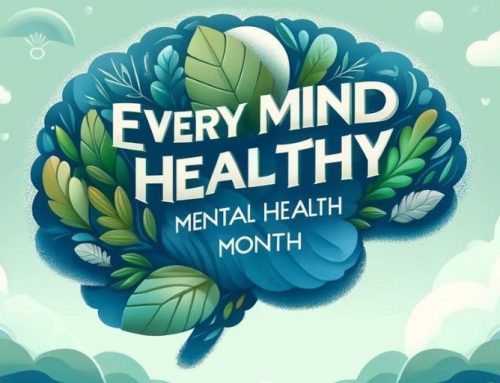May is Mental Health Month, a time dedicated to raising awareness about mental health issues and providing resources to those who need them. As part of our commitment to fostering a better understanding of mental health, we recently held a Q&A session with Dr. Angela Onwuanibe, a renowned psychiatrist with over 20 years of experience in the field. During the session, Dr. Onwuanibe answered some of the most pressing questions from patients about mental health, offering valuable insights and practical advice.
How can therapy help me manage my mental health issues, and what types of therapy are available?
Answer: Therapy can provide you with tools to understand and manage your emotions, develop healthier coping strategies, and improve your overall well-being. Common types of therapy include Cognitive Behavioral Therapy (CBT), which focuses on changing negative thought patterns, and Psychodynamic Therapy, which explores past experiences to understand current behavior. Other options include Dialectical Behavior Therapy (DBT) and group therapy sessions.
Are medications necessary for treating mental health conditions, and what are the potential side effects?
Answer: Medications can be a valuable part of treatment for some mental health conditions, helping to manage symptoms effectively. The necessity of medication depends on the specific condition and its severity. Potential side effects vary by medication but can include drowsiness, weight gain, and dry mouth. It’s important to discuss these with your healthcare provider, who can monitor and adjust your treatment as needed.
What should I expect during my first appointment with a mental health professional?
Answer: During your first appointment, the mental health professional will ask about your medical history, current symptoms, and any previous treatments. They may also inquire about your personal and family background to get a comprehensive understanding of your situation. This initial assessment helps in creating a tailored treatment plan. It’s also an opportunity for you to ask questions and discuss any concerns you might have about the treatment process.
How long does it usually take to see improvements in my mental health after starting treatment?
Answer: The timeline for seeing improvements varies based on the individual and the specific condition being treated. Generally, patients may start to notice some improvement within a few weeks of starting therapy or medication. However, significant changes might take several months. Consistency with treatment and open communication with your healthcare provider are key to tracking progress and making any necessary adjustments.
Can lifestyle changes really make a difference in managing mental health conditions?
Answer: Yes, lifestyle changes can significantly impact managing mental health conditions. Regular physical activity, a balanced diet, adequate sleep, and stress management techniques can all contribute to better mental health. These changes support overall well-being and can enhance the effectiveness of other treatments like therapy or medication.
How do I know if my mental health condition is hereditary, and what should I do if it is?
Answer: Mental health conditions can have a hereditary component. If you have a family history of mental health issues, you may be at a higher risk. Discuss your family history with your healthcare provider, who can help assess your risk and develop a proactive management plan. Early intervention and preventive strategies can be especially beneficial in these cases.
What are the differences between psychiatrists, psychologists, and therapists, and how do I choose the right one for me?
Answer: Psychiatrists are medical doctors who can prescribe medication and provide therapy. Psychologists typically have a doctoral degree in psychology and provide therapy but generally cannot prescribe medication. Therapists, which can include social workers and counselors, offer various types of therapy and support but also cannot prescribe medication. Choosing the right professional depends on your needs; if you require medication management, a psychiatrist might be the best choice. For therapy alone, a psychologist or therapist could be suitable.
How can I handle a mental health crisis or emergency when it happens?
Answer: In a mental health crisis, it’s important to have a plan in place. If you are in immediate danger or having suicidal thoughts, go to the nearest emergency room or call emergency services. Reach out to a trusted friend or family member for support. You can also contact crisis hotline 988. Having a list of emergency contacts and knowing local resources can be crucial during a crisis.
Problem displaying Facebook posts. Backup cache in use.
Click to show error









